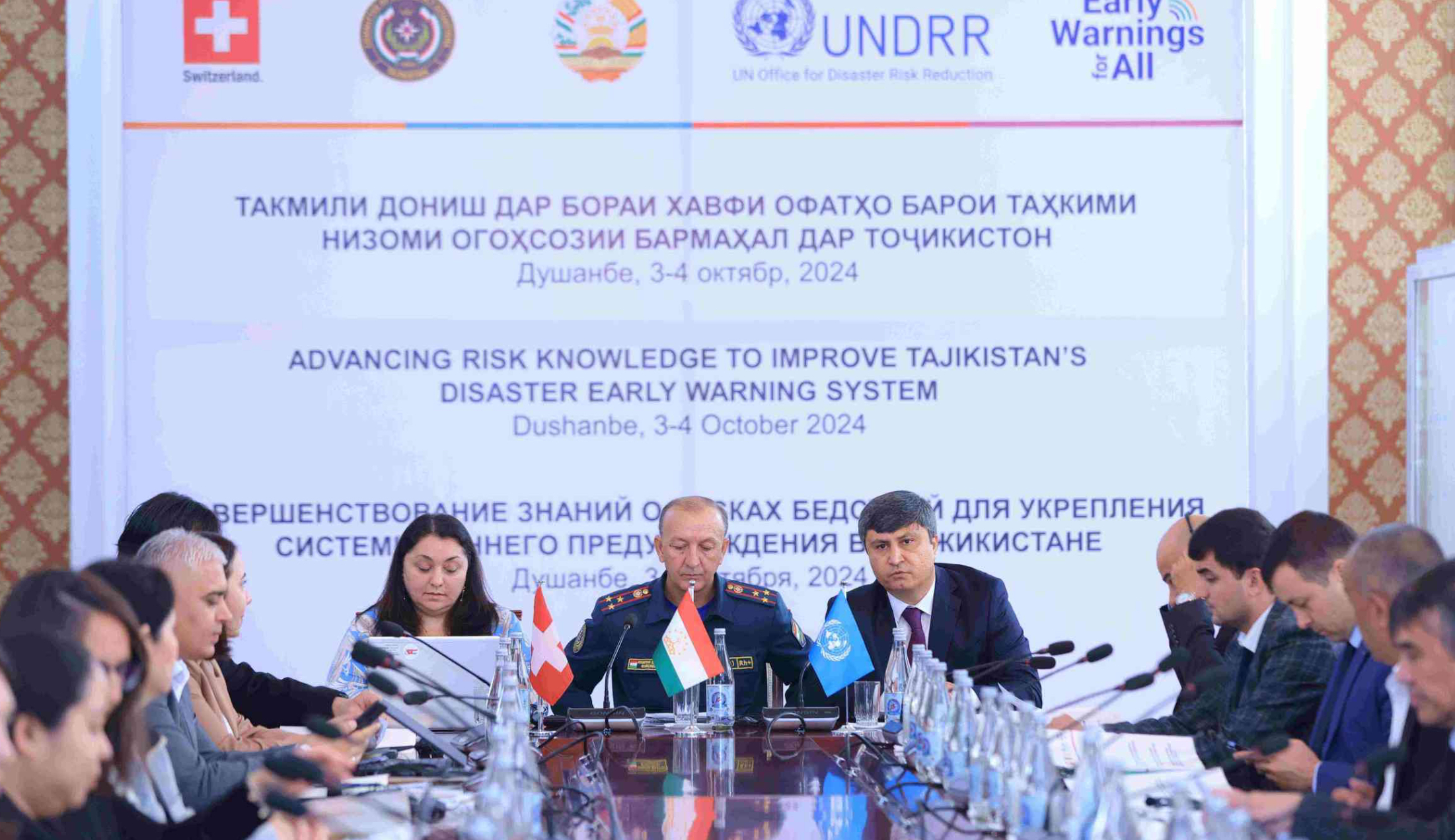A workshop was held in Dushanbe as part of the “Strengthening Resilience to Disasters and Climate Change in Tajikistan” joint project between the UN Office for Disaster Risk Reduction (UNDRR) and the government of Switzerland. The event, “Advancing Risk Knowledge to Improve Tajikistan’s Disaster Early Warning System,”aligns with the global initiative Early Warnings for All (EW4All) and focuses on improving the country’s ability to predict and mitigate disaster risks.

Led by the government of Tajikistan, the workshop brought together key international partners, including UNDP, OCHA, CIMA Research Foundation, and Microsoft. Tajikistan, one of the most disaster-prone countries in Central Asia, has experienced over 4,000 natural events in recent decades, resulting in an estimated $500mn in damages. The improvement of early warning systems (EWS) has thus become critical in safeguarding lives and reducing damage from future disasters.
The workshop emphasized enhancing risk knowledge, a crucial component in understanding which populations are most vulnerable to natural hazards like floods and earthquakes. By assessing the likelihood and potential impacts of these risks, experts can create tailored warnings aimed at protecting the most at-risk communities. These tailored messages are essential to ensuring that alerts are timely, effective, and capable of reaching those who need them the most.
Globally, early warning systems have proven effective in saving lives and minimizing damage. However, gaps remain, with one in three people still lacking protection. The EW4All initiative aims to bridge this gap by 2027, ensuring that everyone has access to an operational early warning system.
Tajikistan is actively working on addressing these gaps. A national workshop held in August 2023 identified weaknesses in the country’s early warning system, leading to the development of a roadmap. Officially endorsed in July 2024, this roadmap outlines key steps to enhance the nation's early warning capabilities.
At the Dushanbe workshop, participants reviewed current approaches, undergoing training, and learning about new technologies like Microsoft’s AI-powered exposure mapping. These tools empower the country to better monitor hazards, evaluate risks, and deliver life-saving alerts.
This workshop marked an important step toward creating a safer, more resilient future for Tajikistan, ensuring that communities are well-prepared for the increasing threats posed by natural disasters.
Follow Daryo's official Instagram and Twitter pages to keep current on world news.
Comments (0)